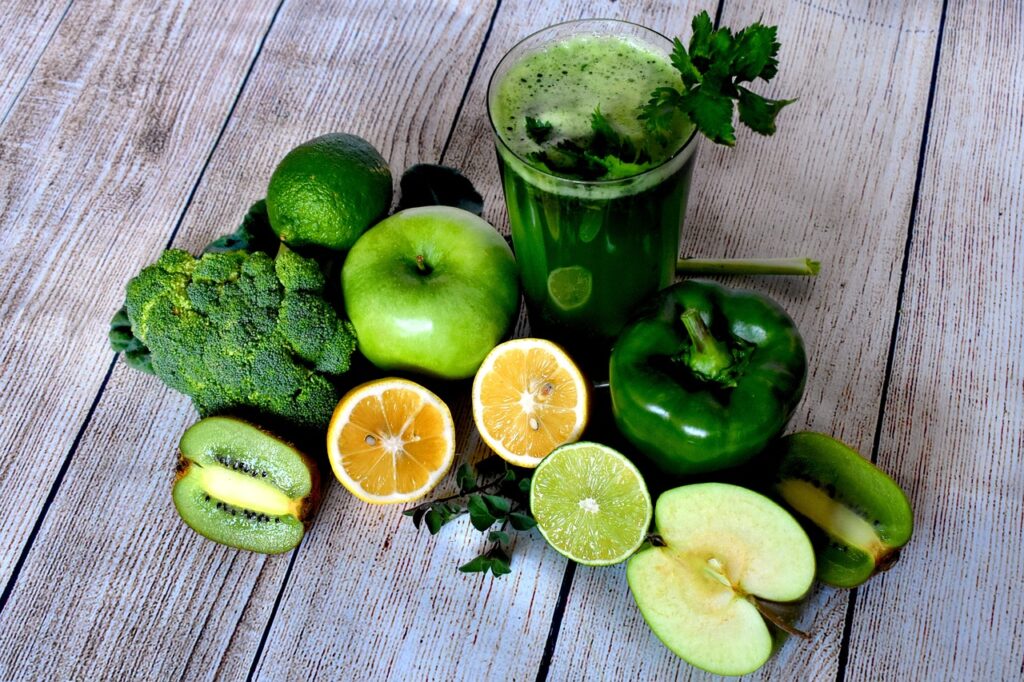In today’s fast-paced world, maintaining optimal brain health is crucial for overall well-being. While factors like genetics and lifestyle play significant roles, nutrition also plays a key role in supporting cognitive function and preserving memory. In this article, we’ll explore the best foods for a healthy brain and improved memory, backed by scientific research and expert recommendations.
Diet has a profound impact on brain health and cognitive function. Just like the body, the brain requires essential nutrients to function optimally. A well-balanced diet provides the necessary vitamins, minerals, antioxidants, and other compounds that support brain health.
Your brain, the master controller of your body, regulates your respiration, heart rate, and ability to move, feel, and think.
Consuming specific meals can help you maintain optimal brain function.
Contents
- 1 Top Foods for Brain Health
- 2 Hydration and Brain Function
- 3 The Gut-Brain Connection
- 4 Foods to Limit or Avoid
- 5 Meal Planning for Brain Health
- 6 Supplements for Brain Health
- 7 Incorporating Brain-Boosting Foods into Your Diet
- 8 The Importance of Variety and Balance
- 9 Physical Activity and Brain Health
- 10 Stress Management and Mental Well-being
- 11 Sleep and Cognitive Function
- 12 Conclusion
- 13 FAQs
Top Foods for Brain Health
Omega-3 Fatty Acids
Omega-3 fatty acids, particularly EPA and DHA, are essential for brain health. These fatty acids play a crucial role in brain structure and function, supporting nerve cell membranes and aiding neurotransmitter function. Sources of omega-3 fatty acids include fatty fish like salmon, trout, and sardines, as well as flaxseeds, chia seeds, and walnuts.

Omega-3 fatty acids, including EPA (eicosapentaenoic acid) and DHA (docosahexaenoic acid), are vital components for maintaining optimal brain health. These fatty acids are renowned for their critical role in the structure and function of the brain, contributing significantly to various cognitive processes.
One of the primary functions of omega-3 fatty acids in the brain is their role in supporting nerve cell membranes. Nerve cell membranes are crucial for communication between brain cells, allowing signals to pass efficiently. Omega-3 fatty acids help maintain the integrity and fluidity of these membranes, ensuring optimal transmission of signals throughout the brain.
Moreover, omega-3 fatty acids are essential for neurotransmitter function. Neurotransmitters are chemical messengers that facilitate communication between nerve cells. EPA and DHA help regulate the production and activity of neurotransmitters, such as serotonin and dopamine, which play key roles in mood regulation, memory, and cognition.
Including omega-3 fatty acids in the diet is paramount for brain health. While fatty fish like salmon, trout, and sardines are rich sources of EPA and DHA, plant-based sources such as flaxseeds, chia seeds, and walnuts also provide alpha-linolenic acid (ALA), a precursor to EPA and DHA. Although ALA must be converted into EPA and DHA in the body, incorporating a variety of omega-3-rich foods ensures an adequate intake of these essential fatty acids.
Incorporating omega-3 fatty acids into your diet through a variety of sources can help support brain health, enhance cognitive function, and promote overall well-being.
Antioxidant-rich Foods
Antioxidants help protect the brain from oxidative stress and inflammation, which are linked to cognitive decline and neurodegenerative diseases. Incorporating antioxidant-rich foods such as berries, dark chocolate, and colorful fruits and vegetables into your diet can help support brain health.
Antioxidants are compounds that play a crucial role in protecting the body, including the brain, from oxidative stress and inflammation. Oxidative stress occurs when there is an imbalance between free radicals and antioxidants in the body, leading to damage to cells and tissues. This damage has been linked to cognitive decline and an increased risk of neurodegenerative diseases, such as Alzheimer’s and Parkinson’s.

Incorporating antioxidant-rich foods into your diet is an effective way to combat oxidative stress and support brain health. Berries, such as blueberries, strawberries, and raspberries, are particularly rich in antioxidants, including flavonoids, anthocyanins, and vitamin C. These compounds have been shown to protect brain cells from damage caused by free radicals, improve communication between brain cells, and enhance cognitive function.
Dark chocolate is another excellent source of antioxidants, particularly flavonoids. Flavonoids have been found to improve blood flow to the brain, promote the growth of new brain cells, and enhance memory and learning. However, it’s essential to consume dark chocolate in moderation, as it is also high in calories and sugar.
Colorful fruits and vegetables, such as spinach, kale, carrots, and peppers, are abundant sources of antioxidants, vitamins, and minerals. These nutrients help neutralize free radicals, reduce inflammation, and support overall brain health. Including a variety of colorful fruits and vegetables in your diet ensures that you receive a wide range of antioxidants to protect your brain and promote cognitive function.
In conclusion, incorporating antioxidant-rich foods like berries, dark chocolate, and colorful fruits and vegetables into your diet is essential for supporting brain health and reducing the risk of cognitive decline and neurodegenerative diseases. By including these foods in your meals and snacks regularly, you can provide your brain with the essential nutrients it needs to function optimally and stay healthy.
Leafy Greens
Leafy greens like spinach, kale, and Swiss chard are rich in nutrients like folate, vitamin K, and lutein, which are associated with improved cognitive function and memory. Adding leafy greens to salads, smoothies, or stir-fries is an easy way to boost your brain health.
Leafy greens such as spinach, kale, and Swiss chard are nutritional powerhouses packed with essential vitamins and minerals that support brain health. These leafy greens are rich in folate, a B vitamin that plays a crucial role in neurotransmitter synthesis, helping to regulate mood and support cognitive function. Additionally, folate has been linked to a reduced risk of cognitive decline and age-related memory loss.
Furthermore, leafy greens are abundant sources of vitamin K, which is essential for maintaining brain health and cognitive function. Vitamin K has been shown to play a role in protecting against age-related cognitive decline and improving memory performance.

Another essential nutrient found in leafy greens is lutein, a carotenoid with powerful antioxidant properties. Lutein helps protect the brain from oxidative stress and inflammation, which are associated with cognitive decline and neurodegenerative diseases. Studies have suggested that higher lutein levels in the brain are associated with better cognitive function and memory.
Incorporating leafy greens into your diet is simple and can be done in various ways. You can add them to salads, smoothies, sandwiches, or stir-fries for a nutrient-packed boost to your brain health. By regularly consuming leafy greens, you can provide your brain with the essential nutrients it needs to function optimally and support cognitive function and memory as you age.
Berries
Berries, such as blueberries, strawberries, and raspberries, are packed with antioxidants called flavonoids, which have been shown to improve memory and cognitive function. Enjoying a handful of berries as a snack or adding them to oatmeal or yogurt can provide a delicious brain boost.
Berries like blueberries, strawberries, and raspberries are not only delicious but also incredibly beneficial for brain health. These small fruits are packed with antioxidants known as flavonoids, which have been extensively studied for their positive effects on memory and cognitive function.

Flavonoids, found abundantly in berries, help protect brain cells from oxidative stress and inflammation, both of which can contribute to cognitive decline and age-related memory loss. Research has shown that regular consumption of flavonoid-rich foods, such as berries, is associated with improved memory, enhanced cognitive performance, and reduced risk of neurodegenerative diseases.
Incorporating berries into your diet is simple and enjoyable. You can enjoy a handful of fresh berries as a snack between meals, add them to your morning oatmeal or yogurt for a nutritious breakfast, or blend them into smoothies for a refreshing and brain-boosting treat.
By regularly consuming berries, you can harness the power of flavonoids to support your brain health and promote optimal cognitive function. So, next time you’re craving a snack, reach for a handful of berries and give your brain a delicious boost!
Nuts and Seeds
Nuts and seeds are excellent sources of vitamin E, an antioxidant that helps protect brain cells from oxidative stress. Additionally, nuts like almonds and walnuts contain omega-3 fatty acids, while pumpkin seeds are rich in zinc, which supports cognitive function.
Nuts and seeds are nutrient-dense foods that offer numerous benefits for brain health. They are rich sources of essential nutrients, including vitamin E, omega-3 fatty acids, and zinc, all of which play important roles in supporting cognitive function and protecting brain cells from oxidative stress.

Vitamin E, found abundantly in nuts and seeds, is a powerful antioxidant that helps neutralize free radicals and prevent oxidative damage to brain cells. By protecting brain cells from oxidative stress, vitamin E may help reduce the risk of cognitive decline and support overall brain health.
Furthermore, certain nuts like almonds and walnuts are also excellent sources of omega-3 fatty acids. Omega-3 fatty acids, particularly EPA and DHA, are essential for brain health and have been linked to improved cognitive function, memory, and mood regulation. Including omega-3-rich nuts in your diet can help support optimal brain function and reduce the risk of cognitive decline.
Additionally, pumpkin seeds are rich in zinc, a mineral that plays a crucial role in cognitive function. Zinc is involved in various processes in the brain, including neurotransmitter regulation, synaptic plasticity, and memory formation. Consuming pumpkin seeds as part of a balanced diet can help ensure adequate zinc intake and support optimal brain health.
Incorporating a variety of nuts and seeds into your diet is an easy and delicious way to support brain health. You can enjoy them as a snack on their own, sprinkle them over salads or yogurt, or use them as ingredients in baked goods and savory dishes. By regularly including nuts and seeds in your meals, you can provide your brain with the essential nutrients it needs to function optimally and stay healthy.
Hydration and Brain Function
Staying hydrated is essential for optimal brain function. Even mild dehydration can impair cognitive performance, including memory, attention, and mood. Aim to drink plenty of water throughout the day and include hydrating foods like fruits and vegetables in your diet.
Hydration plays a crucial role in maintaining optimal brain function and cognitive performance. The brain is composed primarily of water, and adequate hydration is essential for various physiological processes, including neurotransmitter production, nutrient transport, and waste removal.
Aim to drink plenty of water throughout the day to ensure adequate hydration. While individual fluid
and to listen to your body’s cues for thirst. Additionally, incorporating hydrating foods like fruits and vegetables into your diet can contribute to your overall hydration levels.
Fruits such as watermelon, strawberries, oranges, and grapes have high water content and can help keep you hydrated. Similarly, vegetables like cucumbers, tomatoes, lettuce, and bell peppers are also rich in water and can contribute to your daily fluid intake.
Incorporating these hydrating foods into your meals and snacks not only helps maintain hydration but also provides essential vitamins, minerals, and antioxidants that support overall brain health. By prioritizing hydration and consuming hydrating foods regularly, you can ensure that your brain remains properly hydrated, supporting optimal cognitive function, memory, and mood throughout the day.
The Gut-Brain Connection
The gut-brain connection refers to the relationship between the gut microbiota and brain function. A healthy gut microbiome is associated with better cognitive function, mood regulation, and stress response. Consuming probiotic-rich foods like yogurt, kefir, and fermented vegetables can support gut health and, in turn, brain health.
The gut-brain connection highlights the intricate relationship between the gut microbiota—the diverse community of microorganisms living in the digestive tract—and brain function. Emerging research has shed light on the profound impact that the gut microbiome can have on various aspects of brain health, including cognitive function, mood regulation, and stress response.
A healthy gut microbiome is associated with better cognitive function and a reduced risk of cognitive decline. The microorganisms in the gut produce neurotransmitters and other signaling molecules that communicate with the brain via the gut-brain axis, influencing mood, behavior, and cognitive processes.
Furthermore, the gut microbiota plays a crucial role in regulating the body’s stress response. Stress can disrupt the balance of gut bacteria, leading to gastrointestinal symptoms and exacerbating mental health issues such as anxiety and depression. Conversely, maintaining a diverse and balanced gut microbiome can help mitigate the effects of stress on both the gut and the brain.
Consuming probiotic-rich foods is one way to support gut health and promote a healthy gut-brain connection. Probiotics are beneficial bacteria that can help restore and maintain a healthy balance of gut bacteria. Foods like yogurt, kefir, fermented vegetables, and kimchi are rich sources of probiotics and can help support a diverse and resilient gut microbiome.
Foods to Limit or Avoid
Sugary Foods and Beverages
Excessive sugar consumption can impair cognitive function and increase the risk of cognitive decline and dementia. Limiting sugary foods and beverages like soda, candy, and pastries is essential for brain health.
Excessive consumption of sugary foods and beverages can have detrimental effects on brain health. Research has shown that high sugar intake is associated with impaired cognitive function and an increased risk of cognitive decline and dementia later in life.
When we consume sugary foods and beverages, particularly those high in refined sugars and carbohydrates like soda, candy, pastries, and other processed snacks, it can lead to rapid spikes and crashes in blood sugar levels. These fluctuations in blood sugar can disrupt brain function, impairing concentration, memory, and overall cognitive performance.

Moreover, a diet high in sugar has been linked to inflammation in the brain, oxidative stress, and insulin resistance, all of which are risk factors for cognitive decline and neurodegenerative diseases like Alzheimer’s.
To promote brain health and reduce the risk of cognitive decline, it is crucial to limit the consumption of sugary foods and beverages. Instead, focus on incorporating whole, nutrient-dense foods into your diet, such as fruits, vegetables, whole grains, lean proteins, and healthy fats.
By prioritizing a balanced diet that minimizes sugar intake and emphasizes wholesome foods, you can support optimal brain function and reduce the risk of cognitive decline as you age. Making mindful choices about your dietary habits can have significant long-term benefits for brain health and overall well-being.
Processed Foods
Processed foods often contain unhealthy fats, refined carbohydrates, and additives that can negatively impact brain health. Opt for whole, unprocessed foods whenever possible to support optimal cognitive function.
Processed foods, commonly found in the form of packaged snacks, frozen meals, and fast food items, are often laden with unhealthy fats, refined carbohydrates, and artificial additives. These ingredients can have detrimental effects on brain health and cognitive function.
Unhealthy fats, such as trans fats and saturated fats, found in many processed foods, have been linked to inflammation in the brain, which can impair cognitive function and increase the risk of cognitive decline over time. Additionally, excessive consumption of refined carbohydrates, like those found in processed snacks and sugary treats, can lead to rapid spikes and crashes in blood sugar levels, negatively impacting mood, energy levels, and cognitive performance.

Furthermore, processed foods often contain additives such as artificial colors, flavors, and preservatives, which may have adverse effects on brain health. Some studies suggest that certain food additives may contribute to hyperactivity, attention deficits, and other cognitive issues, particularly in children.
To support optimal cognitive function and overall well-being, it is essential to minimize the consumption of processed foods and opt for whole, unprocessed alternatives whenever possible. Whole foods, such as fruits, vegetables, whole grains, lean proteins, and healthy fats, provide essential nutrients and antioxidants that nourish the brain and support cognitive health.
By prioritizing a diet rich in whole, nutrient-dense foods and minimizing the intake of processed foods, you can help protect your brain health and promote optimal cognitive function throughout your life. Making mindful choices about the foods you consume can have significant long-term benefits for both your physical and mental well-being.
Meal Planning for Brain Health
When planning meals for brain health, focus on incorporating a variety of nutrient-dense foods from all food groups. Include plenty of fruits, vegetables, whole grains, lean proteins, and healthy fats to provide your brain with the nutrients it needs to thrive.
Meal planning plays a crucial role in supporting brain health and cognitive function. By focusing on incorporating a variety of nutrient-dense foods from all food groups, you can ensure that your meals provide the essential nutrients your brain needs to thrive.
When planning meals for brain health, prioritize the following nutrient-rich foods:
- Fruits and Vegetables: Aim to include a colorful array of fruits and vegetables in your meals. These foods are rich in vitamins, minerals, antioxidants, and phytonutrients that support brain health and protect against cognitive decline.
- Whole Grains: Choose whole grains like brown rice, quinoa, oats, and whole wheat bread over refined grains. Whole grains provide fiber, vitamins, and minerals that help regulate blood sugar levels and support brain function.
- Lean Proteins: Incorporate lean protein sources such as poultry, fish, beans, lentils, tofu, and Greek yogurt into your meals. Protein is essential for building and repairing brain cells and neurotransmitters.
- Healthy Fats: Include sources of healthy fats, such as avocados, nuts, seeds, olive oil, and fatty fish like salmon and tuna. These fats provide omega-3 fatty acids, which are critical for brain health and cognitive function.
- Hydration: Don’t forget to stay hydrated by drinking plenty of water throughout the day. Dehydration can impair cognitive function, so aim to drink water with meals and throughout the day to keep your brain functioning optimally.
When planning your meals, aim for balance and variety by including a combination of different food groups in each meal. Try to incorporate a mix of colors, flavors, and textures to make your meals more enjoyable and satisfying.
By prioritizing nutrient-dense foods and following a balanced meal plan, you can support brain health, improve cognitive function, and enhance overall well-being. Meal planning for brain health is an essential component of a healthy lifestyle and can have significant long-term benefits for your mental and cognitive health.
Supplements for Brain Health
Vitamin B12
Vitamin B12 plays a crucial role in brain health, supporting nerve function and DNA synthesis. While B12 is found naturally in animal products like meat, fish, and dairy, supplementation may be necessary for individuals with deficiencies or limited dietary intake.
Vitamin D
Vitamin D is important for cognitive function and may help reduce the risk of cognitive decline and dementia. While sunlight is the primary source of vitamin D, supplementation may be beneficial for individuals with inadequate sun exposure or those living in northern latitudes.
Incorporating Brain-Boosting Foods into Your Diet
Adding brain-boosting foods to your diet doesn’t have to be complicated. Start by making small changes like swapping out sugary snacks for fresh fruit, incorporating leafy greens into salads and smoothies, and snacking on nuts and seeds instead of processed snacks.
The Importance of Variety and Balance
A diverse and balanced diet is essential for optimal brain health. Aim to eat a wide range of foods from all food groups to ensure you’re getting the nutrients your brain needs to function at its best.
Physical Activity and Brain Health
Regular exercise is not only beneficial for physical health but also for brain health. Physical activity improves blood flow to the brain, stimulates the release of growth factors that support the growth of new brain cells, and enhances mood and cognitive function.
Stress Management and Mental Well-being
Chronic stress can have detrimental effects on brain health, leading to cognitive decline and increased risk of mental health disorders. Practicing stress management techniques such as mindfulness, meditation, and deep breathing can help protect the brain and promote mental well-being.
Sleep and Cognitive Function
Quality sleep is essential for cognitive function and memory consolidation. Aim for 7-9 hours of uninterrupted sleep per night to support optimal brain health and improve memory and cognitive function.
Conclusion
In conclusion, a healthy diet rich in brain-boosting foods is essential for maintaining cognitive function and improving memory. By incorporating omega-3 fatty acids, antioxidants, leafy greens, berries, nuts, and seeds into your diet, staying hydrated, managing stress, getting regular exercise, and prioritizing sleep, you can support optimal brain health and enhance your memory and overall well-being.
FAQs
- Are there any specific foods that can help prevent memory loss?
- Certain foods like fatty fish, berries, nuts, and leafy greens are associated with improved memory and cognitive function.
- Can supplements replace the need for a healthy diet for brain health?
- While supplements can help fill nutrient gaps, they should not replace a healthy diet rich in whole, nutrient-dense foods.
- How much water should I drink each day for optimal brain function?
- Aim to drink at least 8-10 cups of water per day, but individual fluid needs may vary based on factors like age, activity level, and climate.
- Is there a link between caffeine consumption and brain health?
- Moderate caffeine consumption may have cognitive benefits, but excessive intake can lead to negative side effects like jitteriness and disrupted sleep.
- Are there any specific foods that can help boost concentration and focus?
- Foods rich in protein, healthy fats, and complex carbohydrates can help stabilize blood sugar levels and support sustained focus and concentration.

